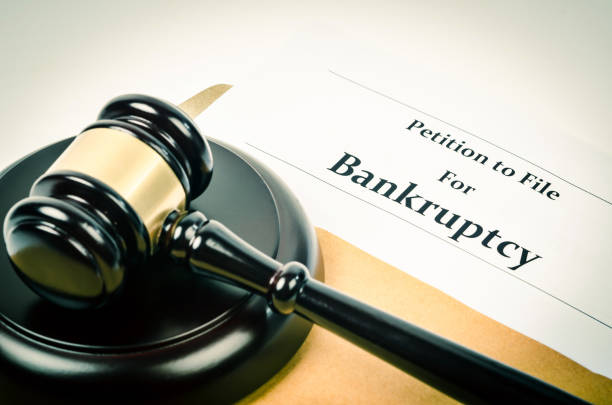How Long Does the Bankruptcy Process Really Take?

What Happens During Bankruptcy?
Bankruptcy begins with filing a petition in court, followed by submitting complete financial disclosures. The next step is the 341 meeting of creditors, where the trustee and creditors may ask questions about the debtor’s finances. After this, the court either discharges the debts (in Chapter 7) or confirms a repayment plan (in Chapter 13). The full process can take a few months to several years depending on the chapter and circumstances.Internal Resource:
For those exploring legal options or seeking help, visit Legal Case Review for trusted guidance and resources.Ready to connect with top legal professionals? Get immediate support— Call us at 877-550-8911.
Chapter 7 Bankruptcy Timeline
Chapter 7 is often referred to as “liquidation bankruptcy” and is the faster option for many filers.- Timeframe: Usually 3 to 6 months
- Steps:
- File petition with required documentation
- 341 meeting scheduled within 20–40 days
- Possible discharge granted within 60–90 days post-meeting
Chapter 13 Bankruptcy Timeline
Chapter 13 is structured around a repayment plan approved by the court.- Timeframe: 3 to 5 years
- Steps:
- File petition and repayment plan
- 341 meeting and plan confirmation hearing within 45 days
- Monthly payments begin upon plan confirmation
- Debts discharged at the end of the repayment period
Factors That Influence Bankruptcy Duration
Several variables can affect how long a bankruptcy process takes:- Chapter Type: Chapter 7 is faster than Chapter 13.
- Case Complexity: Cases involving businesses, property, or lawsuits often take longer.
- Documentation: Missing or incorrect paperwork can stall the process.
- Creditor Objections: Any challenges by creditors can lead to hearings and delays.
- Court Caseload: Busy courts may push hearings out weeks or months.
External Resource:
For court resources and bankruptcy forms, visit the United States Courts Bankruptcy Page.The Role of Court Schedules
Bankruptcy timelines are heavily influenced by court availability. After filing, the court schedules essential milestones such as the 341 meeting or confirmation hearings. Backlogs can delay these appointments, especially in districts with high case volume. To stay on track:- Respond to all court communications
- Confirm hearing dates with your attorney
- Submit all required documents on time
Post-Bankruptcy Timeline and Credit Impacts
Once the bankruptcy process concludes, the timeline for financial recovery begins. Although debts may be discharged quickly, the bankruptcy remains on your credit report:- Chapter 7 stays for 10 years
- Chapter 13 remains for 7 years
- Making on-time payments
- Using secured credit cards
- Monitoring your credit score regularly
 Common Delays in Bankruptcy Cases
Common Delays in Bankruptcy Cases
Many filers experience unexpected delays. Common issues include:
- Incomplete paperwork – Missing forms or incorrect financial disclosures can halt the process.
- Creditor disputes – Challenges to discharge or repayment plans require hearings.
- Missed deadlines – Courts enforce strict timelines; missing one can delay your case by weeks or months.
- Noncompliance – Failing to follow the repayment plan in Chapter 13 may lead to case dismissal.
Tips for Speeding Up the Bankruptcy Process
If you’re looking to reduce how much time the bankruptcy process takes, follow these tips:- Hire an experienced attorney to help with filings and avoid errors
- Gather all documentation (tax returns, pay stubs, bank statements) early
- Attend all court hearings and stay in touch with your attorney
- Be proactive in resolving any creditor objections or trustee concerns
FAQs: How Much Time Does a Bankruptcy Process Take?
Q1: What is the shortest possible time for a bankruptcy to be completed?A: A simple Chapter 7 case with no objections can be completed in 3–4 months.
Q2: Why does Chapter 13 take so long?
A: Chapter 13 includes a 3–5 year repayment plan, which extends the case duration.
Q3: Can bankruptcy be expedited?
A: Yes, by ensuring all paperwork is complete, responding to court notices promptly, and avoiding disputes.
Q4: Does hiring an attorney speed up the process?
A: Absolutely. A knowledgeable bankruptcy attorney can prevent errors and streamline communication with the court.
Q5: What happens if I miss a court deadline?
A: Missing deadlines can result in case delays or even dismissal. It’s important to meet all filing and appearance requirements.
Final Thoughts
Understanding how much time does a bankruptcy process take is key to planning your financial future. Whether you choose Chapter 7 for a fresh start or Chapter 13 to restructure your debt, the timeline varies based on your unique situation. Being informed, proactive, and prepared can help you navigate the process efficiently and begin your road to financial recovery. Need legal advice or help starting your bankruptcy case? Check out Legal Case Review for resources and support tailored to your needs.Don’t wait to secure the legal representation you deserve. Visit Legal Case Review today for free quotes and tailored guidance, or call 877-550-8911 for immediate assistance.



